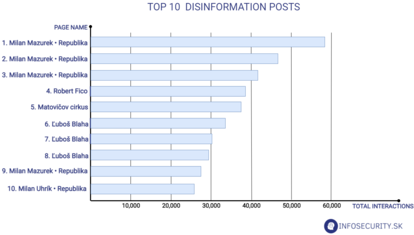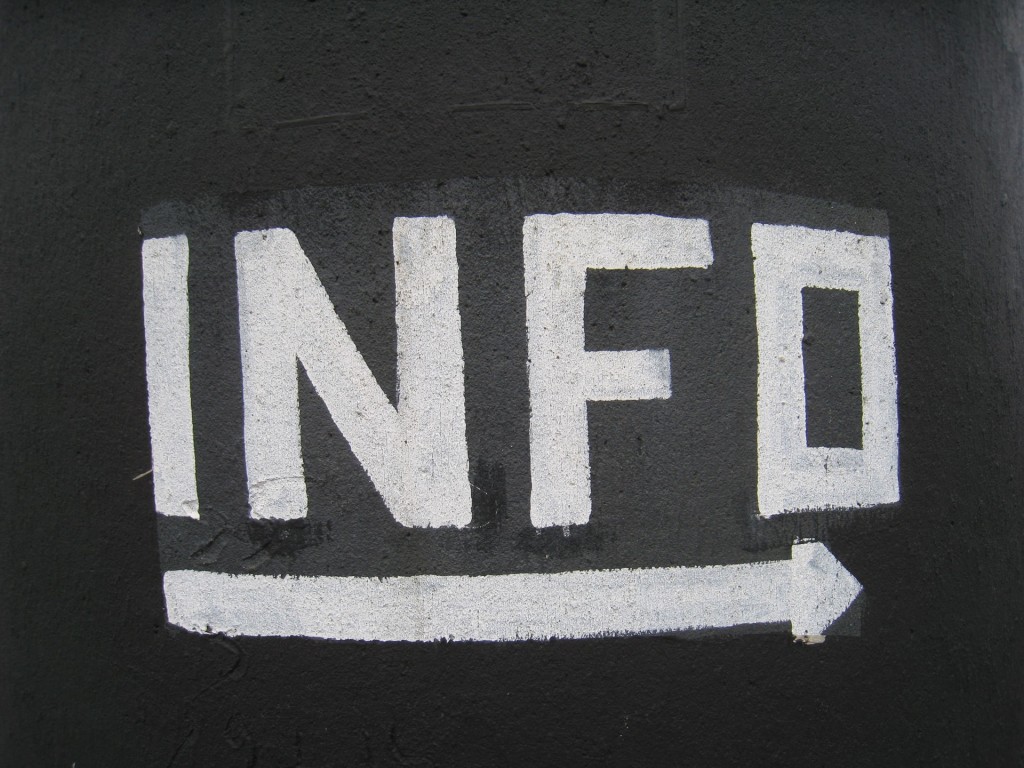Amid Russia’s growing military build-up along Ukraine’s borders, the Slovak pro-Kremlin media are increasingly turning to aggressive rhetoric directed against NATO and Ukraine. In the meantime, the systematic and cynical instrumentalization of migrants and the Covid pandemic for political purposes continues, as do the disinformation campaigns.
Infosecurity.sk presents an overview of disinformation trends that have been on the rise in the information space in the past two weeks:
- As the Russian military build-up along the Ukrainian border continues, the disinformation media have stepped up their anti-NATO and anti-Ukraine rhetoric. They portray NATO as an aggressive organization and claim that Ukraine is preparing an attack on the Donbass.
- Disinformation media blame the EU for attempts to destabilise Belarus and Russia, accusing Poland of provocations and violence against the migrants. The pro-Kremlin media further claim that the EU sanctions against the Lukashenko’s regime are not legitimate.
- As Slovakia enters an all-out lockdown, recurring disinformation narratives claiming that the government is exploiting the coronavirus pandemic in order to establish dictatorship intensify. Some disinformation articles link the lockdown with Big Pharma conspiracy theories and anti-vaccination narratives.
Russian Military Build-Up Under the Cover of Disinformation
Amid the growing international concern over Russia’s military build-up along the Ukrainian border, the pro-Kremlin media have stepped up their anti-NATO rhetoric, claiming NATO is Russophobic and a threat, staging “provocations” near its borders and militarising the Black Sea region.
The messages that the US was pushing Ukraine and the EU into a war with Russia came along. At the same time, Ukraine continued to be portrayed both as a fragile country on the verge of collapse and a permanent aggressor, preparing to attack the self-proclaimed pro-Russian republic of Donbass.
These narratives resemble the rhetoric of the disinformation media from earlier this year, when Russia amassed large numbers of troops and military equipment near the Ukrainian borders.
However, most of the anti-NATO rhetoric consists of recycled disinformation narratives which use NATO’s military exercises as a pretext to shift blame and portray the alliance as the aggressor, while justifying Russia’s aggressive foreign policy as purely defensive.
Needless to say, NATO is a defensive alliance whose goal is to protect its member states. The alliance adheres to strict transparency standards, and its exercises are announced months in advance and are subject to international scrutiny. The same cannot be said of the suspicious movements of Russian troops.
Only time will tell whether Russia is really preparing to invade Ukraine or whether it is pursuing a different goal by escalating military tensions. But the goal of the disinformation rhetoric seems clear: to divide the population and weaken its trust in the Euro-Atlantic structures, as well as to conceal its military posturing and operations on the ground.
Migration in the Focus of the Pro-Kremlin Media
Following the rhetoric of their Belarusian and Russian counterparts, the Slovak disinformation media have seized opportunities to discredit the EU internationally, and distract attention from the abysmal human rights record of the Lukashenko’s regime.
The trend has continued this week as thousands of people gathered in the forests near the Polish-Belarusian border in an effort to break into the EU. It is fair to admit that Poland is also criticized by legitimate actors for its response to the border crisis.
According to the EU, Lukashenko is seeking revenge for the sanctions imposed on his regime following the rigged elections and attacks on independent media and civil society. Polish Prime Minister Mateusz Morawiecki even accused Russia of co-organising the migration crisis.
There is ample evidence that the Belarusian authorities instigated the ongoing migration to Poland, Lithuania and Latvia. Lukashenko and Putin firmly reject any indication that their countries could play a role in the migration crisis, for which they blame the EU.
In the face of conflicting evidence, however, Lukashenko later admitted that his forces may have helped the migrants to get to the borders, citing Slavic generosity as the reason. Slovak disinformation websites follow the same rhetoric, presenting a false dichotomy between the immoral EU and Lukashenko’s regime as an altruistic humanitarian actor.
Lukashenko’s first public visit to the border served as a springboard for the spread of such narratives. Addressing a group of migrants, Lukashenko reportedly promised the migrants warm clothes, food, and other necessities. A convenient PR stunt for the state media, that repeatedly gloss over the fact that the migrants were forced to stay in the harsh conditions at the border by Lukashenko’s own security forces.
The local disinformation media also highlight Putin’s statements about efforts to prevent “violence against migrants,” forgetting Putin’s own poor human rights record. In the narratives, Russia is repeatedly presented as the crisis solver. On the other hand, Poland and the EU are constantly portrayed as violent and immoral perpetrators.
The disinformation media accuse Poland of using extreme violence against the migrants, while the EU is portrayed as an actor that is internally weak and violates human rights. However, the more the disinformation campaign progresses, the more it leans towards the extremes. This is demonstrated by the fact that some articles even spread false claims that Poland is secretly preparing an armed attack on Belarus and false reports that Poland is deploying tanks against the migrants.
Other groundless narratives portray the migration crisis as an EU-instigated event that serves as a pretext for EU sanctions against Lukashenko’s regime. Such narratives aim to obscure the real reasons for the EU sanctions against the Belarusian regime. The EU has imposed new restrictive measures against the Belarusian regime in response to the escalation of serious human rights violations in Belarus and the violent repression of civil society, democratic opposition and journalists.
As the situation continues to develop, it is highly likely that we will continue to see these narratives in the future.
Covid-Related Disinformation, Our Daily Bread
Of course, not a week goes by without Covid-related disinformation. Ever since the Covid outbreak, pandemic-related narratives have been among the dominant topics in the disinformation stream.
As the pandemic situation worsens and Slovakia enters an all-out lockdown, recurring disinformation narratives claiming that the government is exploiting the coronavirus pandemic in order to abolish liberal democracy and establish dictatorship further intensify.
Other disinformation articles link the lockdown to Big Pharma conspiracy theory and anti-vaccination narratives claiming that the global elites have orchestrated the coronavirus pandemic and are exploiting it to increase their wealth and control over the masses.
Over the past two weeks, far-right and far-left actors have continued to spread this damaging rhetoric, and as data from CrowdTangle shows, rather successfully.[1]

The graph above shows the top 10 posts which gained the highest number of interactions (likes, comments and shares) on Facebook over the past two weeks. The main topic in all the posts were the pandemic restrictions. Nine of the analyzed posts were posted by far-right and far-left actors known for spreading problematic content.
The majority of the posts contain the disinformation narratives mentioned above. Milan Mazurek, a member of the far-right Republika party, repeatedly talks about “the introduction of totalitarianism”.
A far-left politician, Ľuboš Blaha, presents the audience with conspiracy theories about the origin of the virus. Former Prime Minister Robert Fico calls compulsory vaccination a “disgusting fascist idea” and encourages the public to protest, which is extremely dangerous given the current pandemic situation.
Considering that the posts contain disinformation narratives and conspiracy theories, they have gained a worryingly high number of views and interactions. Unfortunately, we are slowly getting used to the trend of radical politicians not shying away from endangering the for the sake of political gain.
The article was originally published at: https://www.freiheit.org/central-europe-and-baltic-states/all-quiet-eastern-front-escalating-disinformation-rhetoric-over
Project Infosecurity.sk organised by STRATPOL – Strategic Policy Institute and Slovak Security Policy Institute, which is supported by the Prague office of the Friedrich Naumann Foundation for Freedom, continuously monitors the activities of both Slovak and foreign disinformation actors, but focuses mainly on the former. The project activities are built upon daily monitoring of emerging disinformation, hoaxes, and conspiracy theories in the online information space. This approach allows the analysts to identify disinformation posts and narratives that resonated with the public the most, as well as to find out where they originated, and how they spread and evolved on social media. The report takes the form of a bi-weekly summary of arising trends in the spread of malicious information content online. Based on that, Infosecurity.sk can warn the public about emerging and current trends in the field of disinformation, manipulation, and propaganda.
[1] The data was obtained by searching the Slovak disinformation database for posts which gained the highest number of interactions on Facebook. CrowdTangle is a monitoring tool made available by Facebook to help monitor, analyse, and report on what’s happening across the platform. https://www.crowdtangle.com
Written by:
Matej Spišák – a Research Fellow at STRATPOL – Strategic Policy Institute in Bratislava and Editor-in-Chief at Infosecurity.sk
Denis Takács – an Analyst at STRATPOL – Strategic Policy Institute in Bratislava



